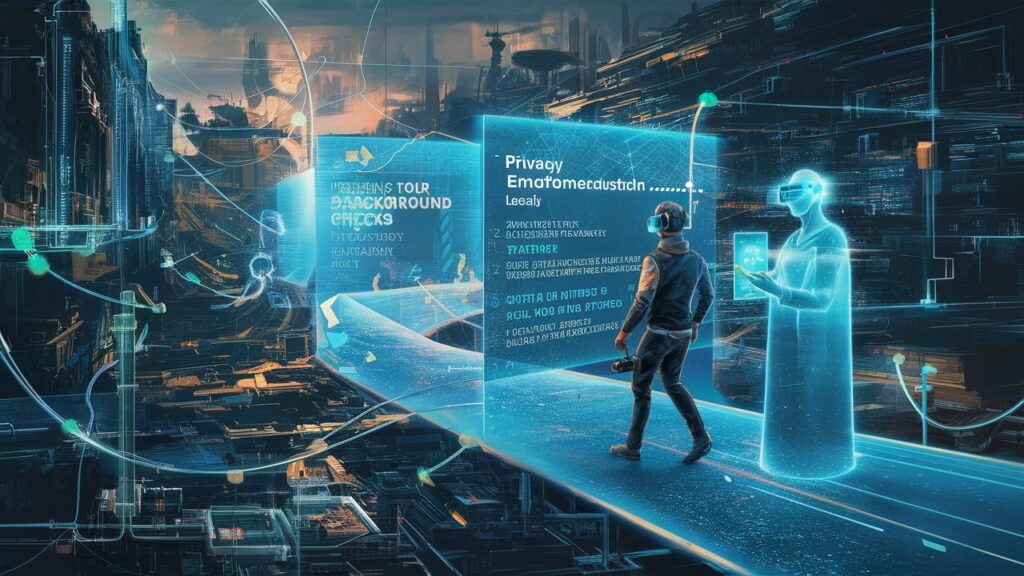Introduction
In an era where digital footprints are as significant as physical presence, cyber background checks have emerged as a critical tool for employers, landlords, and individuals seeking to verify identities, assess reputations, and mitigate risks. Unlike traditional background checks, which focus on criminal records or employment history, cyber background checks delve into the vast expanse of online data—social media activity, public records, forum posts, and more. This article explores the nuances of cyber background checks, their importance, legal considerations, and practical steps to conduct them effectively. By understanding their scope and limitations, stakeholders can make informed decisions while balancing privacy and security.
1. Understanding Cyber Background Checks: Definition and Scope
A cyber background check is a systematic review of an individual’s or organization’s digital presence to uncover information that may not appear in conventional checks. This process involves analyzing social media profiles, online forums, blog posts, court records, and even dark web databases. For instance, a potential employer might scrutinize a candidate’s LinkedIn endorsements, while a landlord could review an applicant’s public financial records for red flags. The scope extends beyond mere data collection; it includes interpreting online behavior patterns, assessing credibility, and identifying potential risks like cyberbullying or fraud.
2. Why Cyber Background Checks Matter in the Digital Age
The rise of remote work, online transactions, and digital identities has amplified the need for cyber due diligence. A single controversial tweet or a hidden association with extremist groups can jeopardize a company’s reputation or compromise safety. For example, a financial institution might use cyber checks to ensure a hire has no history of phishing scams. Similarly, parents vetting a babysitter could discover concerning social media activity. Cyber background checks also help combat identity theft by verifying if personal details have been leaked on the dark web. In essence, they bridge the gap between offline credentials and online realities.
3. Key Components of a Comprehensive Cyber Background Check
A thorough cyber screening includes several pillars:
- Social Media Activity: Platforms like Facebook, Twitter, and Instagram reveal attitudes, affiliations, and professionalism.
- Online Presence: Blogs, podcasts, or YouTube channels may showcase expertise—or expose harmful ideologies.
- Public Records: Court documents, property ownership, and bankruptcy filings provide legal and financial insights.
- Dark Web Scans: Tools like HaveIBeenPwned identify if an individual’s data is compromised.
- Professional Licenses and Certifications: Verifying digital badges or LinkedIn endorsements ensures authenticity.
Each component requires contextual analysis; a meme shared in jest might not indicate malice, but consistent toxic behavior warrants concern.

4. Legal and Ethical Considerations in Cyber Background Checks
While cyber checks offer valuable insights, they must comply with privacy laws like the General Data Protection Regulation (GDPR) and the Fair Credit Reporting Act (FCRA). For example, employers in the U.S. must obtain written consent before conducting checks that affect hiring decisions. Ethically, avoid invasive practices like hacking private accounts or using fake profiles to gather data. Transparency is key: inform subjects about the process and how their data will be used. Missteps can lead to lawsuits or reputational damage, underscoring the need for ethical frameworks.
5. Steps to Conduct an Effective Cyber Background Check
To perform a cyber risk assessment:
- Define Objectives: Determine if the check is for employment, tenancy, or personal safety.
- Gather Basic Information: Start with full names, email addresses, and phone numbers.
- Use Specialized Tools: Platforms like TruthFinder or BeenVerified aggregate public data efficiently.
- Analyze Context: Distinguish between harmless quirks and genuine red flags.
- Document Findings: Maintain records to justify decisions and ensure accountability.
For instance, a company vetting a CFO might prioritize financial records and professional networks over casual social media use.
6. Challenges and Limitations of Cyber Background Checks
Despite their utility, cyber checks face hurdles like data accuracy and information overload. A common name might yield false matches, while outdated posts may misrepresent current behavior. Additionally, algorithms can misinterpret sarcasm or cultural nuances. Privacy advocates argue that excessive scrutiny infringes on personal freedoms, especially when unrelated to the role. To mitigate risks, pair automated tools with human judgment and prioritize relevance over volume.
7. The Future of Cyber Background Checks: Trends and Innovations
Advancements in AI and machine learning are revolutionizing cyber checks. Predictive analytics can flag potential risks based on behavioral patterns, while blockchain technology may secure immutable digital identities. Governments are also tightening regulations, such as requiring dark web monitoring for certain industries. However, these innovations raise ethical questions about surveillance and bias, necessitating ongoing dialogue between technologists and policymakers.

Conclusion
Cyber background checks are indispensable in a world where digital and physical realities intertwine. By leveraging technology responsibly, stakeholders can uncover critical insights while respecting privacy. Whether hiring a remote employee, onboarding a tenant, or protecting personal data, these checks empower informed decisions. However, their effectiveness hinges on ethical practices, legal compliance, and a nuanced understanding of human behavior. As the digital landscape evolves, so too must our approaches to balancing transparency and trust.
Frequently Asked Questions (FAQs)
Q1: Are cyber background checks legal?
Yes, provided they comply with local laws like GDPR or FCRA. Always obtain consent and avoid accessing private accounts without authorization.
Q2: How do cyber background checks differ from traditional ones?
Traditional checks focus on criminal records and employment history, while cyber checks analyze online behavior, social media, and dark web exposure.
Q3: What information can’t be included in a cyber background check?
Legally protected data (e.g., medical records, political affiliations in some regions) and information obtained illegally (e.g., hacked emails).
Q4: Can individuals opt out of cyber background checks?
In many cases, yes. However, refusal may impact outcomes like job offers or rental approvals.
Q5: Are DIY cyber checks as reliable as professional services?
DIY tools offer preliminary insights but lack the depth and legal compliance of professional services, which use verified databases and expert analysis.
This comprehensive guide equips readers with the knowledge to navigate cyber background checks confidently, ensuring security without sacrificing ethics.
